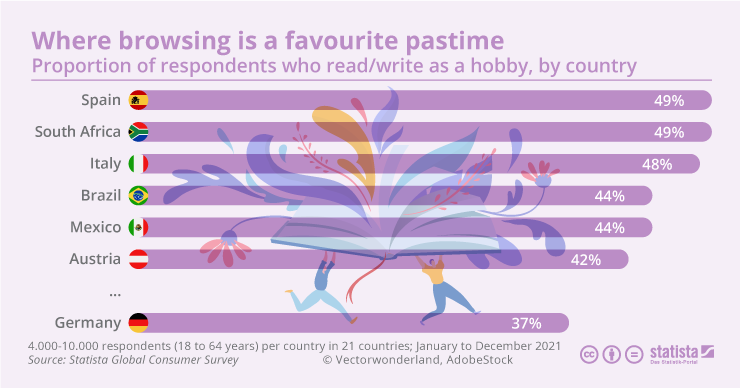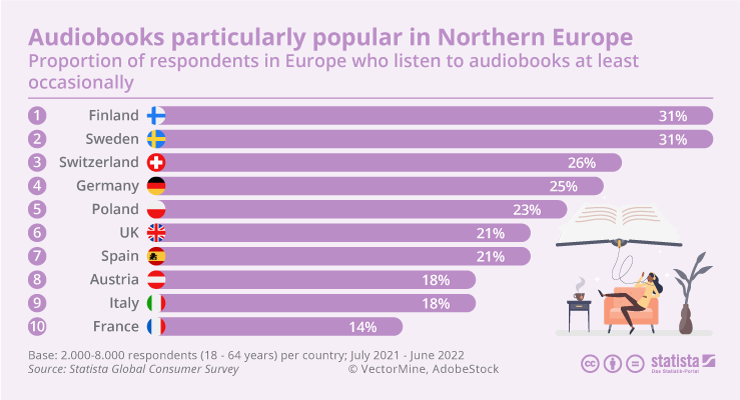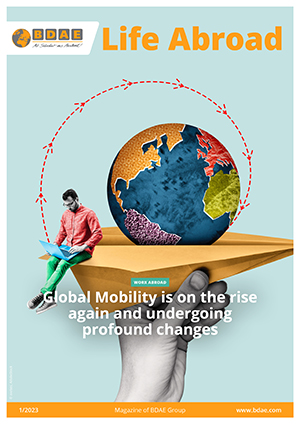The nations that read and listen to books the most
World Literacy Day has been celebrated every year since 1965 with the aim of raising awareness about the issue of illiteracy. Being able to read and write is a fundamental requirement for everyday life, and this event serves to highlight its importance. Furthermore, books, magazines, and newspapers remain relevant as a source of leisure and entertainment, despite the ongoing trend of digitalization in our societies.
According to the Statista Global Consumer Survey, 49 percent of Spaniards and South Africans, for example, read and write in their free time.
In Germany, however, browsing is less popular, as the chart shows.

Fewer illiterates in the world
Analyses conducted by the OECD and the World Bank tend to show that literacy rates worldwide have improved significantly over the past 200 years. Whereas in 1820 only an estimated twelve percent of people were able to read and write, by 2020 the figure was an estimated 87 percent. Accurate data is difficult to collect, however, as data points are often incomplete or outdated.
For those who cannot find or do not take the time to read, audio books are a welcome solution. Germans, however, seem to be less and less enthusiastic about audiobooks. The sales share of audio books in the German book trade has fallen significantly within the last few years.
About a quarter of those surveyed in this country listen to audiobooks at least occasionally. In a European comparison, this is a relatively large number, as the infographic shows. Audiobooks are only more popular in Sweden and Finland (31 per cent each) and Switzerland (26 per cent).

According to the survey, interest was comparatively low in France - here, only about 14 percent of participants said they listen to audiobooks from time to time.

